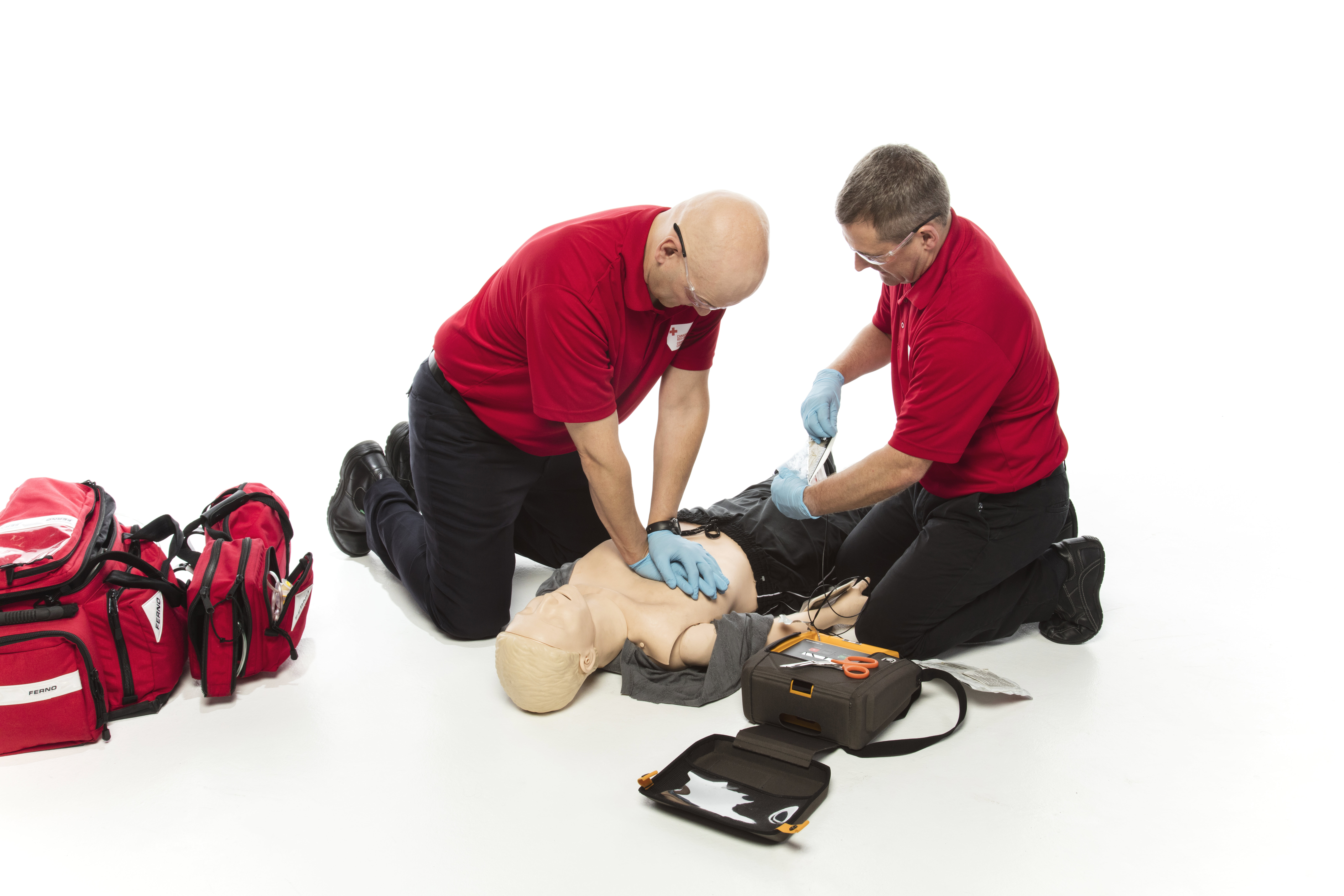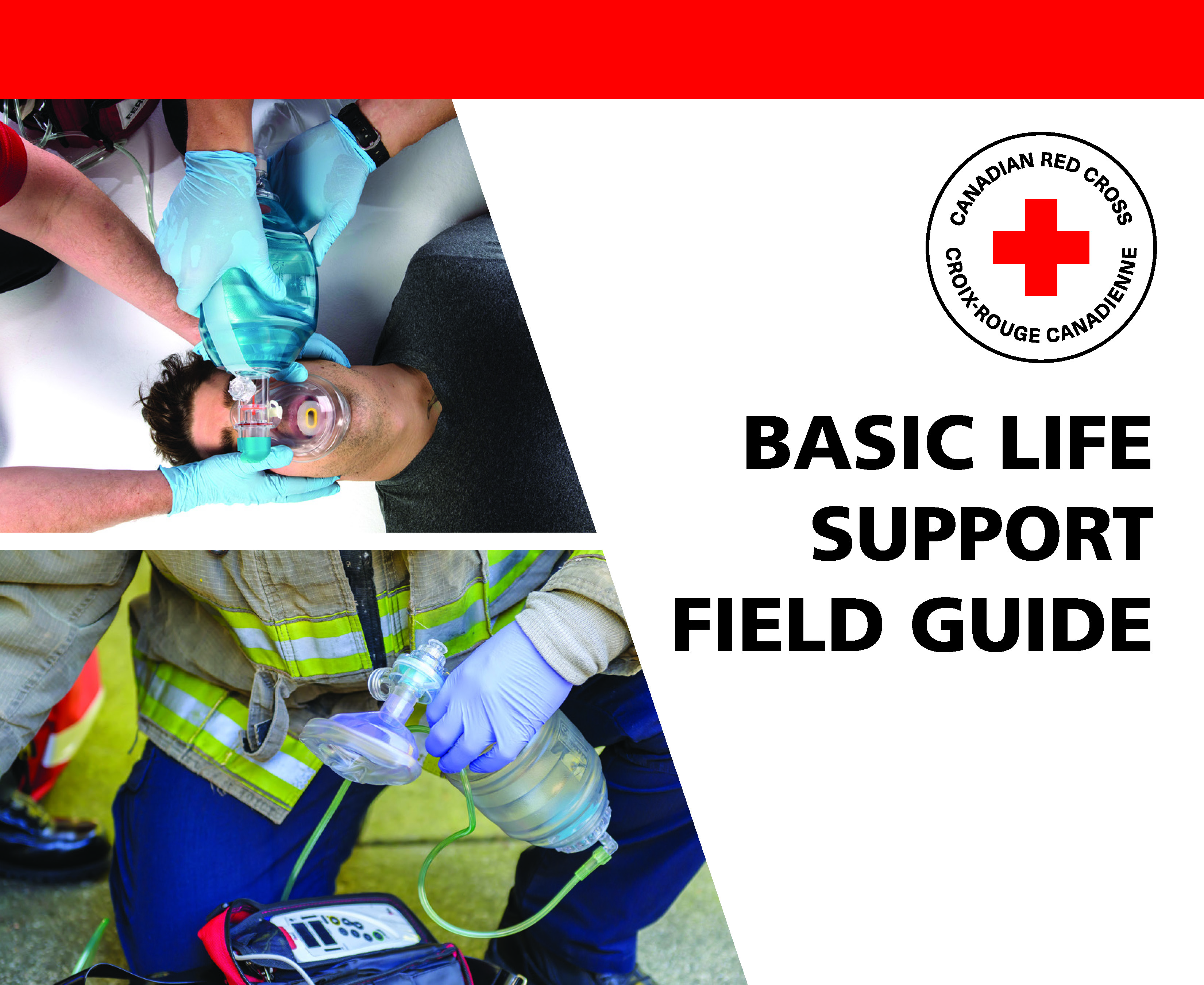
Basic Life Support
Our Basic Life Support (BLS) course is designed for healthcare professionals and emergency responders who need to perform high-quality CPR and resuscitation as part of a team. This course provides the advanced skills needed to respond effectively in critical cardiac and respiratory emergencies.
Course Overview – Basic Life Support (BLS)
The Canadian Red Cross Basic Life Support course equips in-facility and pre-hospital responders with the knowledge and hands-on practice needed to perform professional resuscitation in a team-based environment. This course focuses on high-performance CPR, team communication, and rapid intervention for patients experiencing cardiac or respiratory arrest.
This program is industry-driven and emphasizes a robust, team-oriented approach to lifesaving interventions. The BLS course is designed to reflect the dynamic nature of multidisciplinary teams working in high-stakes environments.
Key Topics Covered:
- High-Quality CPR Techniques: Learn and practice high-performance CPR for adults, children, infants, and neonates.
- Team Dynamics and Communication: Understand the roles and responsibilities within a resuscitation team to ensure seamless, effective collaboration.
- Cardiac and Respiratory Arrest Response: Gain the skills to assess and intervene quickly during cardiac and respiratory arrest.
- Airway Management: Practice effective airway techniques to support patients in respiratory distress.
- Use of Resuscitation Equipment: Learn to operate bag-valve masks (BVMs), automated external defibrillators (AEDs), and other professional resuscitation tools.
This course prepares participants to respond confidently in high-pressure situations, whether in a pre-hospital or in-facility setting.
Why Choose This Course?
- Professional-Level Training: Designed for healthcare providers and emergency responders who need advanced CPR and resuscitation skills.
- Workplace Compliance: Meets Canadian Red Cross standards and industry requirements for healthcare settings.
- Recognized Certification: Earn a Basic Life Support certification valid for 1 year, widely recognized across healthcare industries.
- Team-Based Resuscitation Focus: Emphasizes communication, leadership, and coordination in emergency scenarios.
- In-Depth Hands-On Practice: Led by experienced instructors, this course offers immersive training with real-world scenarios.
Course Duration:
- Full Course: 4 hours In-Person
- Recertification: 2.5 to 4 hours In-Person
This course ensures participants receive comprehensive training to support high-quality resuscitation in professional healthcare environments.
Important Note:
This course is specifically for healthcare professionals and emergency responders. It does not cover basic layperson CPR. Participants should have prior experience in CPR and emergency response. However, this is not a requirement.
Course Details
Topics Covered
Basic Life Support includes:
- Glove Removal
- Primary Assessment
- Cardiopulmonary Resuscitation (CPR)
- Automated External Defibrillator (AED)
- Airway Obstruction
- Assisted Ventilation
- Basic Life Support Special Considerations
FAQs
IS BLS and HCP the same?
BLS used to exist alongside CPR HCP (Health Care Provider) for many years. Since then,CPR HCP has essentially been deprecated (scrapped) in favour of widespread adoption of BLS as a national standard for CPR among healthcare providers. While CPR HCP essentially taught lay rescuer CPR skills and added some additional topics geared toward professional healthcare workers, in a BLS course the time is spent practicing skills from the professional responder context from beginning to end. The goal of BLS is to become not just familiar, but proficient at performing CPR skills as a 2 person team with others certified in BLS. Since this is a national standard the hope is that widespread adoption of BLS will improve the efficiency and interoperability of healthcare teams the survival rate for patients who are in healthcare contexts where Advanced Cardiovascular Life Support may not be available.
Is BLS different than CPR?
No. CPR C is geared toward ‘lay rescuers’, or people who work in the community but may need to know CPR in case of a life-threatening emergency. BLS, or ‘Basic Life Support’ is geared toward Professional Responders and Health Care Professionals who work in a clinical environment outside of a hospital. CPR C will focus on basic life saving principles and how to do CPR in a variety of situations. BLS will focus on a very specific, detailed approach to performing CPR as part of a 2 person BLS team. BLS also covers more in-depth assessment and life saving treatments using more specialized equipment.
What is BLS training?
BLS stands for Basic Life Support which is geared toward Professional Responders and Health Care Professionals who may have to perform CPR before Advanced Cardiac Life Support is available The goal of BLS training is to become not just competent, but proficient at performing CPR skills as a 2 person team with others certified in BLS. To reach this goal of proficiency, BLS courses focus entirely on CPR (and other critical interventions) in the healthcare context, and do not address CPR for lay rescuers. This means much more practice time with the skills, tools, and teamwork involved in delivering CPR to a BLS standard. Also, certification is only valid for one year, requiring annual practice in the form of a shorter recertification course on an annual basis in order to stay certified. Since this is a national standard the hope is that widespread adoption of BLS will improve the efficiency and interoperability of healthcare workers and professional responders when performing CPR - and ultimately improve the survival rate for patients who suffer cardiac arrest in situations where ACLS may not be immediately available.
Training Schedules & Locations
Victoria Victoria - Downtown Vancouver Vancouver - Kingsway Nanaimo Nanaimo - DowntownTraining Schedules & Locations
VictoriaVictoria - Downtown VancouverVancouver - Kingsway NanaimoNanaimo - DowntownMaterials

The Basic Life Support (BLS) course includes the following materials:
- Canadian Red Cross Basic Life Support Field Guide (virtual)
- Canadian Red Cross Comprehensive Guide to First Aid (virtual)
Resources
Basic Life Support Field GuideWho should take this course?
- In-facility care providers
- nursing staff
- care aides
- medical and dental professionals
- pre-hospital care providers
- fire service
- rescue team
- sports-medicine
- lifeguards
- ski patrol
Looking for a group class?
If you have a group of people and would like us to come to you to teach a
Basic Life Support course, we offer this course in the following locations:
Victoria | Langford | Esquimalt | Sooke | Cobble Hill | Mill Bay | Duncan | Lake Cowichan | Cedar | Ladysmith | Nanaimo | Parksville | Qualicum Beach | Port Alberni | Coombs | Parksville | Campbell River | Saltspring Island | Pender Island | Powell River | Gabriola Isand | Burnaby | Coquitlam | Delta | Langley | Maple Ridge | New Westminster | North Vancouver | Pitt Meadows | Port Moody | Richmond | Surrey | Vancouver | West Vancouver | White Rock | Langley |
Give us a call at 1.866.282.5378, or send us an email at info@alertfirstaid.com to arrange a group course.
